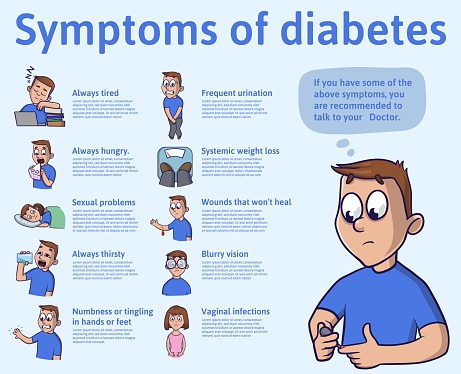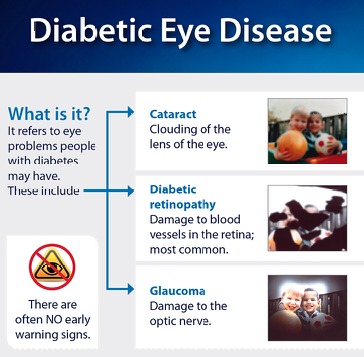
Diabetic eye is a serious condition that can lead to blindness or vision loss. It is important to get checked for any changes in vision, because it is important to prevent the disease. Fortunately, diabetic eye can be prevented. Proper blood glucose management is essential for diabetes prevention. Also, it is important to see a doctor if you notice any new changes in vision. You may also have vision problems that aren’t related to your diabetes.
One of the first signs of diabetes is a blurred vision. A diabetic eye can also have leaking blood, which causes the lens of the eye to cloud and block the light from passing through the pupil to the retina. This causes the images to be distorted and blurred. In advanced proliferative retinopathy, the blood vessels can actually grow into the retina and interfere with the normal drainage of fluid out of the eye. This pressure can eventually damage the optic nerve.
The second sign of diabetes is blurry vision. This happens when blood sugar in the eyes reaches too high or too low. This can lead to the fact that the eye lens swells, which can cause blurry vision. Even if your vision is normal, it can be a sign of diabetic retinopathy. The disease will lead to loss of vision and ultimately to blindness.
In addition to blurry vision, diabetic eyes can lead to rapid changes in blood sugar. From the rapid fluctuations in the blood sugar level in the lens in the center of the eye, it does not change its shape, which leads to distorted or blurry images. Ultimately, this condition can lead to the fact that the fibrous tissue develops on the retina, which leads to serious damage. It is very important to visit an eye doctor for proper diagnosis and treatment.
Diabetic eyes can also lead to blurry vision. This is a symptom of a diabetic eye disease. If the eyes are cloudy, the patient will have blurry vision. In some cases, the retina will deteriorate and need a cataract operation. Others symptoms of a diabetic disease of the eyes

include glazed or distorted appearance and inability to focus on objects. The retina will become more difficult to see and gradually worse.
While the signs of diabetic eye disease can be subtle, the condition is not uncommon in people with diabetes. In the early stages, patients will experience blurred vision. In more advanced stages, the condition can lead to glaucoma. This condition is usually not curable, but regular visits to the eye specialist will help reduce the risk. If not detected, diabetic retinopathy can lead to loss of vision and blindness.
If a patient suffers from the symptoms of diabetic eye disease, it is important to seek medical attention immediately. If the symptoms are severe, the problem can be life-threatening. It may take several months to return to normal. Your vision may even be affected for a decade or more. While it is rare to lose vision, this condition can lead to serious complications and can lead to blindness. Once diagnosed, the symptoms of diabetic eye can be treated with a prescription or surgery.
The most common type of diabetic eye disease is retinopathy. This type of vision loss is the most common type. All diabetics are at risk for diabetic retinopathy, which can lead to blindness. The condition can also be aggravated by high blood sugar and blood pressure. While it can be a dangerous condition, it is still treatable. Your doctor can prescribe a treatment plan for you.
The most common type of diabetic eye disease is retinopathy. This is a condition that affects the nerves in the eye. If you have diabetes, you are at an increased risk for developing retinopathy. It is also possible to have some of these symptoms, but they are not always related to retinopathy. When diabetic eye disease occurs, the nerves of the eye become inflamed, causing blindness and vision problems.
Diabetic retinopathy is a potentially serious complication of diabetes. It affects the retina and can affect vision. While there is no cure for diabetic retinopathy, it can be prevented by keeping blood glucose levels within a normal range. In addition to regular eye exams, patients with diabetes should also undergo extra checks during pregnancy. If you have vision problems, you should contact a doctor. Your doctor will perform a yearly examination to make sure you don’t have any complications with your eyes.